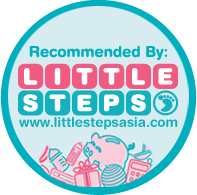
Boundaries Are Your Best Friend
Boundaries keep us safe in all our relationships, at work, with family and friends. Without healthy boundaries you can frequently feel anxious, annoyed or conflicted about relationships. Lack of healthy boundaries can cause you to lose yourself and become disempowered, or to feel depleted, as though you don’t have a choice.
How good are your personal boundaries?
- Do you often find yourself saying Yes to something, but secretly wanting to say No? Do you Yes reluctantly (with a ‘but…’) and with a feeling of uneasiness?
- Do you often feel responsible for making or keeping others happy, or worry about upsetting other people?
- Are you very sensitive to other people’s moods and feelings, and highly affected by them?
- Do you often find yourself snowed under with work or burdened by responsibilities or things you are doing for other people at the expense of your own wellbeing, personal time and energy?
- Do you sometimes say “it’s fine” it when actually it isn’t, and make the other person or their actions wrong in your head. Or feel hurt or mistreated, but don’t communicate it?
If you answered yes to one or more of the questions, chances are you can benefit from working on your personal boundaries!
Internal and external boundaries
A personal boundary is a sort of an imaginary line between you and others. It divides up what’s yours and what’s somebody else’s. This applies not only to your body, money, and belongings, but also to your thoughts, feelings, needs and inner reality. It’s the border between my business and your business.
Our boundaries can be both internal and external.
An internal boundary has to do with protecting our sense of Self, and knowing the difference between my feelings and my reality vs. your feelings and your reality. It means knowing that I am entitled to my personal experience, different to yours (and vice versa) and that your emotional state doesn’t have to affect mine – nor is it my responsibility.
When our internal boundaries are not in place we feel strongly affected by other people’s emotions and their opinions of us and everything else. We may feel offended or get defensive when people disagree with us. We feel the need to get people to agree with us, to seek others’ approval or to ‘keep everyone happy’. We may be overly worried about upsetting other people, or not living up to expectations at the expense of meeting our needs. Indeed we may feel obligated to keep constantly giving to others until we are exhausted. We may not even consider how much we can realistically take on, because saying No or asking for support doesn’t easily occur to us…
Sometimes lack of internal boundaries can be mistaken for compassion. But the difference is that real compassion or sympathy doesn’t leave us feeling miserable, depleted or used. We can have compassion for others without losing ourselves. Compassion allows us to still look after ourselves, stay centred, empowered, and give priority to our happiness and wellbeing.
External boundaries are about being honest with ourselves and others about what we are OK with and what we aren’t. And getting clear on what kind of treatment we are willing to tolerate, what responsibilities we are willing take on, and so on. An important part of external boundaries, therefore, is communicating them to others. One of the most obvious ways to do this is learning to say No when we don’t feel fully comfortable saying Yes. If we tend to feel obligated to say Yes when we’d really like to say No this may take a bit of practice!
One of the benefits of practising saying No is that when we do say Yes we can mean it wholeheartedly. Then it is not a hesitant yes (in reality more like a maybe) but a true, committed one. This builds trust within ourselves as well as with people around us. Others actually feel more comfortable asking us when they know we feel free to say No when we mean it.
Setting, communicating and respecting personal boundaries, both internal and external, is one of the greatest acts of self-love we can practise. Healthy boundaries keep us feeling safe in the world and in relationships. It significantly reduces the need for fear, defensiveness and arguments. Boundaries help keep our identity intact avoiding enmeshment and co-dependence where our experience, emotions and actions are overly influenced by those of others. Exercising healthy boundaries also enables us to be real and authentic in our relationships: a key to true intimacy.
Stone and sand boundaries
There are also two different kinds of external boundaries we have with others: those that are set in stone and those that are not. The ‘sand’ boundaries are more flexible and open to negotiation, for example ‘I could be willing to work late on occasion / one evening a week, as long as I know in advance and can make arrangements.’
In reality there are very few stone boundaries. They are those things that we absolutely cannot or are not willing to live with. Most of them have to do with safety, for example physical violence. The more stone boundaries we have the more we set ourselves and others up for failure and disappointment. Even with kids the only boundaries that really need to be set in stone are those related to safety. Most other things can be at least a little bit flexible depending on circumstance, or at least can be discussed and agreed on together.
The communication
Communicating boundaries is not about making demands, making anyone wrong or telling other people what to do. It is about expressing clearly, without blaming, what is OK for us and what isn’t. Individual boundaries can be very different, so we can’t expect people to know ours without us telling them! Since we all have different boundaries, they may need to be communicated and negotiated again. In a partnership we are often required to reflect on what is fundamental to us and what isn’t. What we are willing to live with and what we are not. Ultimately respecting our own boundaries could even mean leaving a relationship in which our boundaries are repeatedly crossed.
As we as people grow and change, our boundaries can also change. They need to be re-negotiated as required. Especially with family members who are used to us being a certain way, setting new boundaries can take some patience. When our healthy boundaries are in place we become a lot less reactive.
Finding the boundary
Knowing where the ‘correct’ boundary lies is not a something anyone outside of ourselves can answer – not even our best friend. It is always a question we need to ask ourselves, along the lines of, ‘Does this feel right for me?’ ‘What am I honestly OK / not OK with?’ ‘Do I want to say yes or no?’, ‘How do I really feel about this?’ Boundaries are a very personal thing and what is totally OK in one relationship may be unacceptable in another. There is no universal right or wrong here; we are all entitled to our own limits that work for us individually.
The positive flipside of strengthening our personal boundaries is that we automatically become more respectful of other people’s boundaries. We begin to respect the personal reality of others and realise that it is not our job to try and change anyone, their experience or their emotions, or to rescue or control anyone, but to value, appreciate and have faith in the differences in each other.
Healthy boundaries are one of the biggest gifts we can give ourselves, and others, in all our relationships.
Helpful practice
Next time you hear yourself saying it’s fine when you don’t meant it 100% (and don’t kid yourself that you never do that!) or saying yes when there is a ‘but’ or a condition, stop! If you need to take some time to get clear on how you feel about it, you can say ‘can I think about this?’– and then get clear! Listen to your inner voice. Are you saying yes because it feels too hard to say no? Or because you don’t want to upset your friend? Because you feel you should? Then go back and practise saying no.
Need help setting boundaries? Contact us Now or Book a Free 15-min Consultation Call with Liisa Halme.
Counselling hypnotherapy


